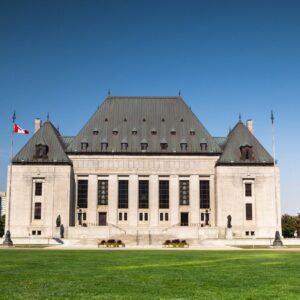Dead Duck Saga Drags On
On Tuesday, the Globe and Mail reported that Syncrude has pleaded “not guilty” to charges in relation to the deaths of 1,600 migrating waterfowl in one of the large toxic tailings ponds near Fort McMurray Alberta. The charges were laid under the Federal Migratory Birds Convention Act and provincial wildlife legislation. While the plea is disappointing, it is perhaps expected from an industry that appears to operate largely with its own rules and criteria that do not appear to be the same by which others are judged. There is no arguing that Syncrude provides thousands of jobs and pays significant taxes. That is not the point. The point is that this fact does not give a company the right to operate outside the standards and laws that apply to others.
In the Globe article, Robert White, Syncrude’s lawyer, was quoted as saying that his company has “spent a tremendous amount of money” to ensure a similar incident doesn’t happen again. White added “to now charge us and bring us to court is not going to bring back 1,603 ducks.” The Syncrude lawyer also suggested that the courts have “recognized for a long time that when people do their best to avoid something, then that isn’t a matter for charges, that’s a matter for fix-up.”
Certainly the Syncrude lawyer’s logic is faulty here. You break the law, normally there is a price to pay, not just in restitution, but also in terms of a punishment. Otherwise, our laws will be used as a mechanism for adaptive management rather than protecting societal values such as the protection of migratory birds, clean water or clean air.
Let’s consider the J.D. Irving Ltd decision with regard to the destruction of a few heron nests in New Brunswick in 2008. Irving eventually pleaded guilty to the charges, after contesting the legislation, and was fined $10,000 and ordered to pay $50,000 contribution to Bird Studies Canada for bird research and conservation. Irving has reportedly been in contact with some conservation NGOs about input into their forestry operations, suggesting that they are moving toward a more best-practices mode of operations to avoid destroying nests.
Whatever measures Syncrude deployed subsequent to the incident, this matter really should be irrelevant before the courts. What matters is what took place at the time of the incident and prior to it. Were they liable for the unnecessary deaths of over 1,600 ducks or not? Could it have been avoided? This is where the liability lies. Kudos to Syncrude for investing in better protection since the bird deaths, but surely these amends should not be a reason to let them off the hook.
Irving could well have argued that they have reformed their forestry practices, that they would conduct assessments for heronries or other multiple season single nesting birds, and that this was good enough for the few nests that were destroyed. However, they were contrite and paid their fine and made the donation. Perhaps Syncrude can learn from this and take the high road by pleading guilty, facing the consequences and stop acting like they are above the law.



